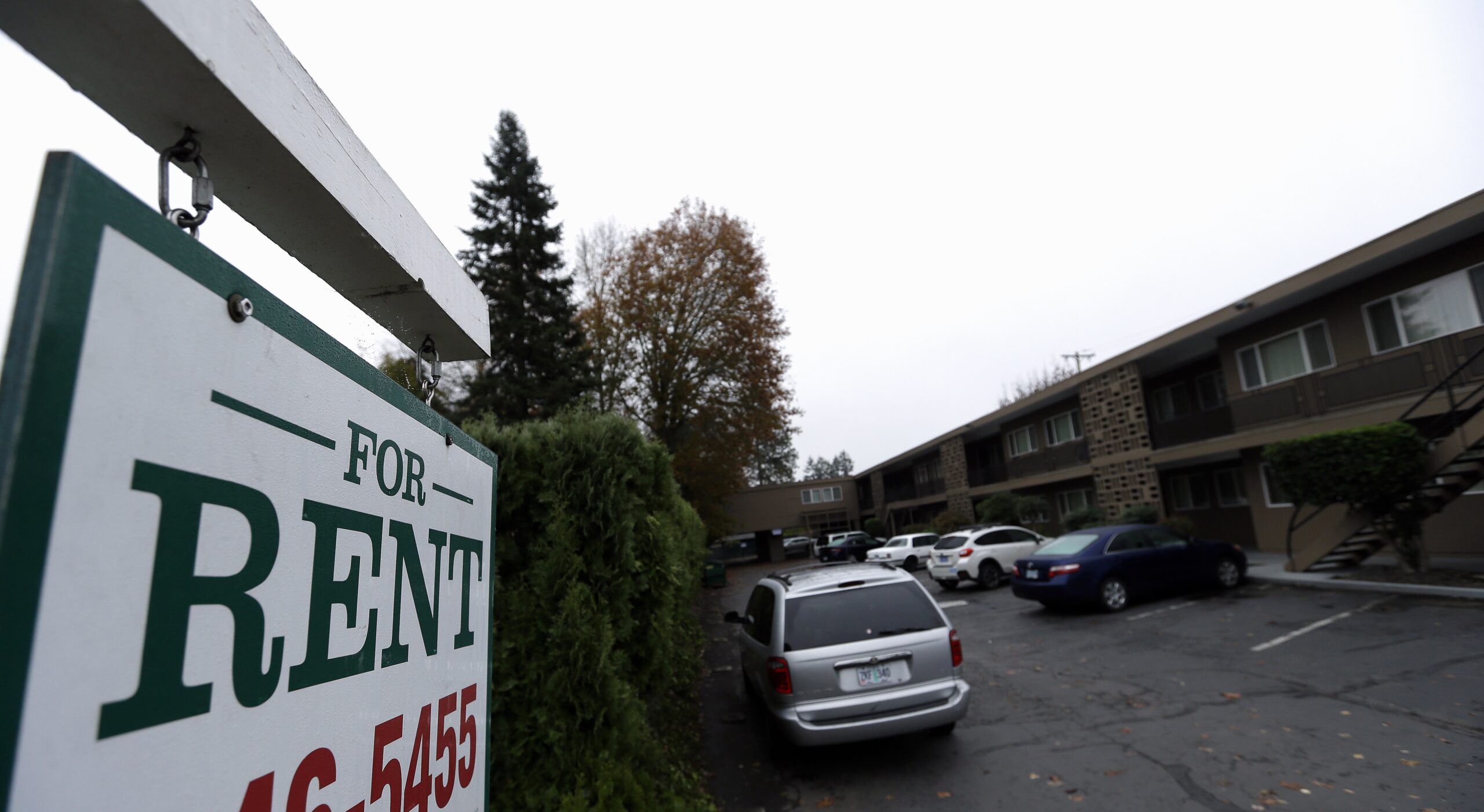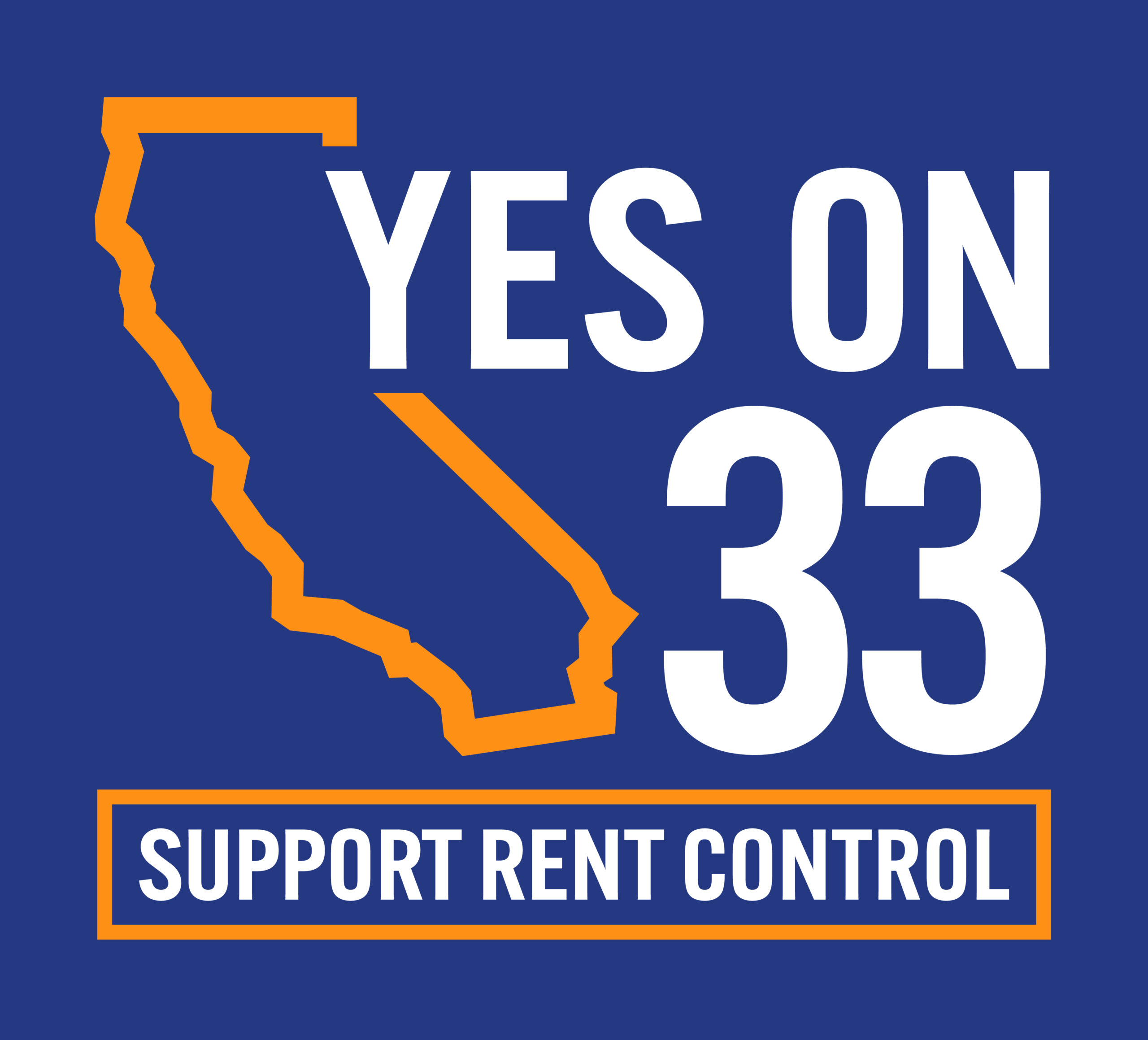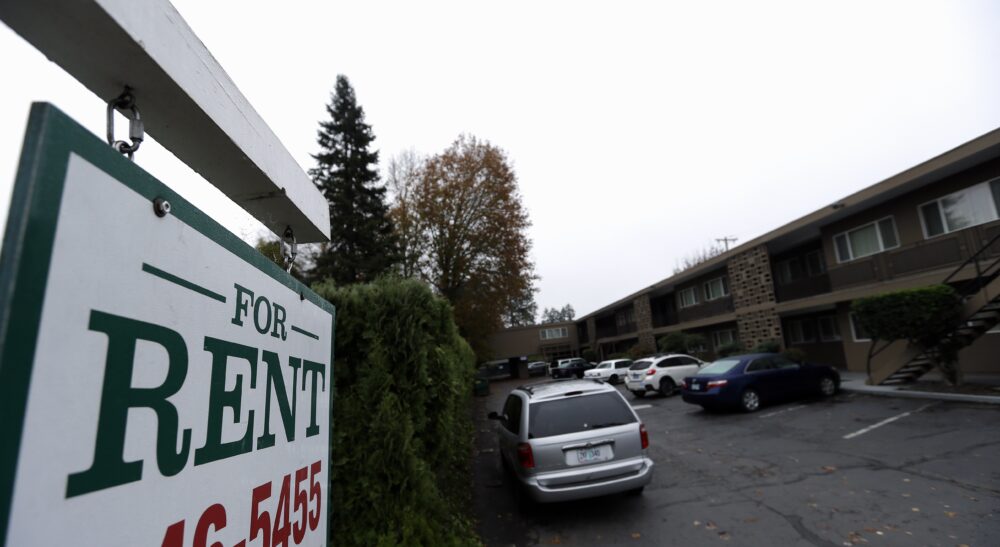
Apartments for rent are shown in Portland, Ore., Tuesday, Nov. 10, 2015. A wave of evictions and skyrocketing rents are putting apartments out of reach of many, including those working part-time, low wage or artistic jobs. Some Portlanders are now looking for better-paying work and some are giving up and leaving. (AP Photo/Don Ryan)
Where are people supposed to live in the United States?
Rents are increasing while wages remain stagnant. Meanwhile, the cost of buying food, paying for gas, and keeping the utilities on is going up. Most people are in the midst of a crisis trying to figure out how to keep a roof over their head while paying for other basic necessities.
Rent payments are stretching budgets like never before, so much so that the typical American renter is now “rent-burdened” for the first time ever, crossing the threshold where housing eats up 30 percent (or more) of their monthly income. In recent months, millions of Americans who have never experienced such an astronomical rent burden are now weighed down desperately, especially in cities like Los Angeles and San Francisco.
My home state of California has more rent-burdened tenants than anywhere in the United States, and the reason is as simple as the well-known line: The rent is too darn high.
Exorbitant rent is also fueling the homelessness crisis. A new, wide-ranging study by the University of California San Francisco found that Californians are homeless largely because sky-high rents are forcing people into the streets. Researchers surveyed nearly 3,200 people and learned that their median household income was below what they could afford for rent. “People are homeless because their rent is too high,” Dr. Margot Kushel, the lead investigator of the study, told the Associated Press.
The status quo simply isn’t working, and states like California need more rent control, not less. Statewide rent control restrictions must end, so local officials can create updated rent control policies.
Recently, the Orange County Register reported that “California tenants suffered the sixth-biggest rent-cost inflation [in the U.S.] in 2016-21—up 27 percent.” Only Idaho, Washington, Nevada, and Arizona saw a larger increase.
One disturbing result of predatory landlords charging unfair, excessive rents is overcrowding. More tenants in California are jamming themselves into a single apartment than any other state. In 2021, the typical California rental unit had 2.73 people—the highest in the nation. It’s a shocking number, but unfortunately, not surprising.
Not long ago, the real estate website Zillow found that tenants in numerous California cities pay landlords staggering sums of rent. In Los Angeles, renters shell out tens of billions of dollars to landlords each year (only New York City tenants paid more). Overall, U.S. renters paid landlords a massive $4.5 trillion in rent during the 2010s.
At the same time, homelessness skyrocketed in Los Angeles, throughout California, and across America. According to another Zillow report, in U.S. cities where people spend more than 32 percent of their take-home pay on rent, a spike in homelessness inevitably follows. As one example of the devastation this causes, LA School Report found last year that more than 51,000 students in L.A. public schools are now homeless. That’s right: 51,000 kids.
We can fix this. Americans can vote to pass rent control measures in their respective states. When the affordable housing crisis is this pronounced, it is time for landlords to be held accountable.
In California, there is a new opportunity to make things right by passing the “Yes on 33 Act,” a 2024 ballot measure that allows local governments to enact and expand rent control. Housing Is A Human Right and its parent organization, AIDS Healthcare Foundation, are sponsoring the initiative to update rent control policies and help millions of rent-burdened California tenants. Prominent USC, UCLA, and UC Berkeley studies have concluded that rent control will indeed stabilize the housing affordability crisis and prevent people from falling into homelessness, so there’s no reason that a state like California shouldn’t provide a blueprint for others to follow.
High rents have a devastating impact on communities, displacing seniors on fixed incomes, veterans, people of color, children, single parents, and students. It also deeply impacts low-wage workers like your Starbucks barista, the checker at Target, the hotel workers in your community, caregivers who take care of family members, and farmworkers who put food on all of our tables.
We must pass the Yes on 33 Act of 2024 if we are to have stable communities where everyone can afford to live. Affordable housing is in crisis, and we must respond with urgency by enacting and expanding rent control.

